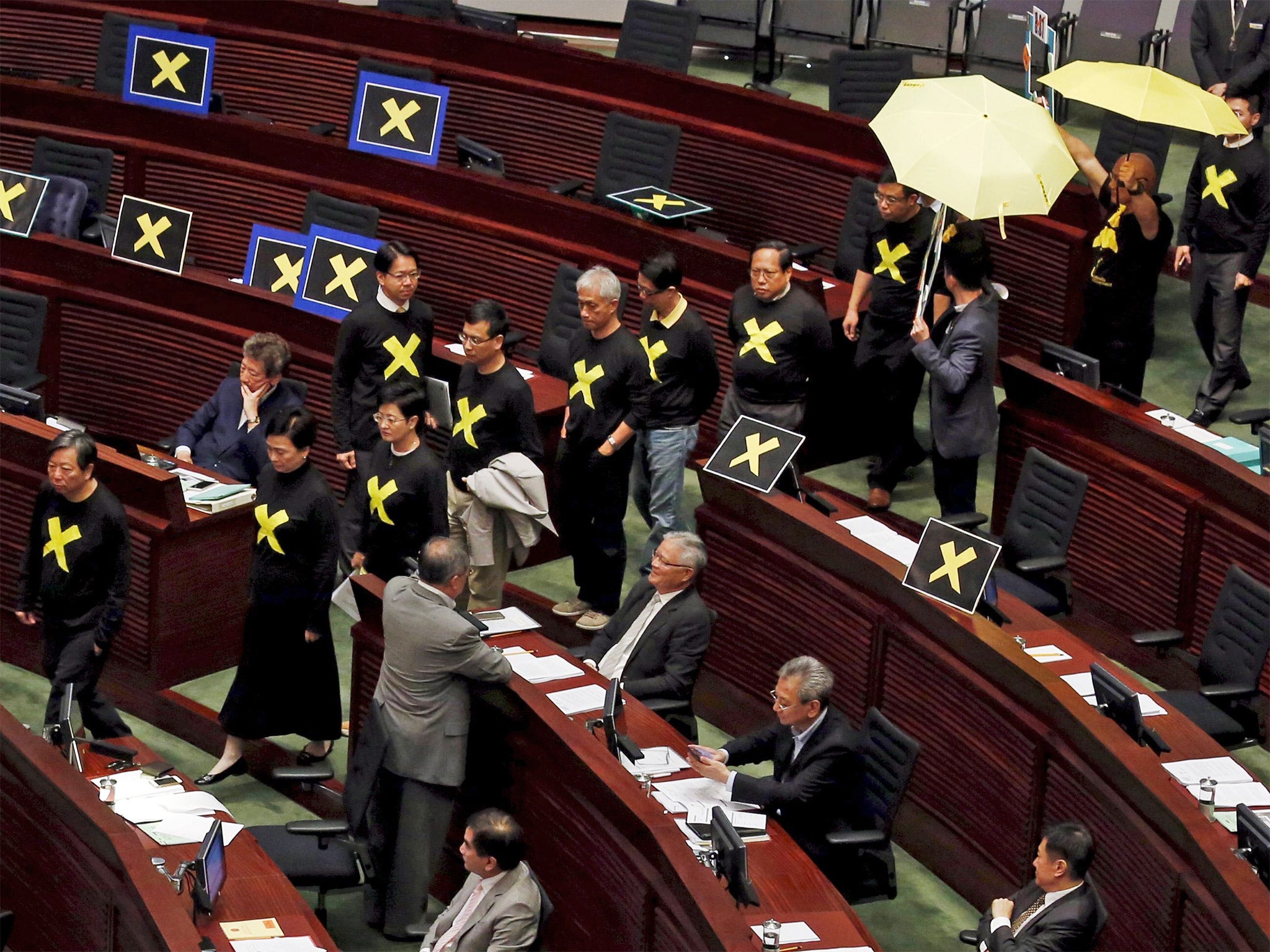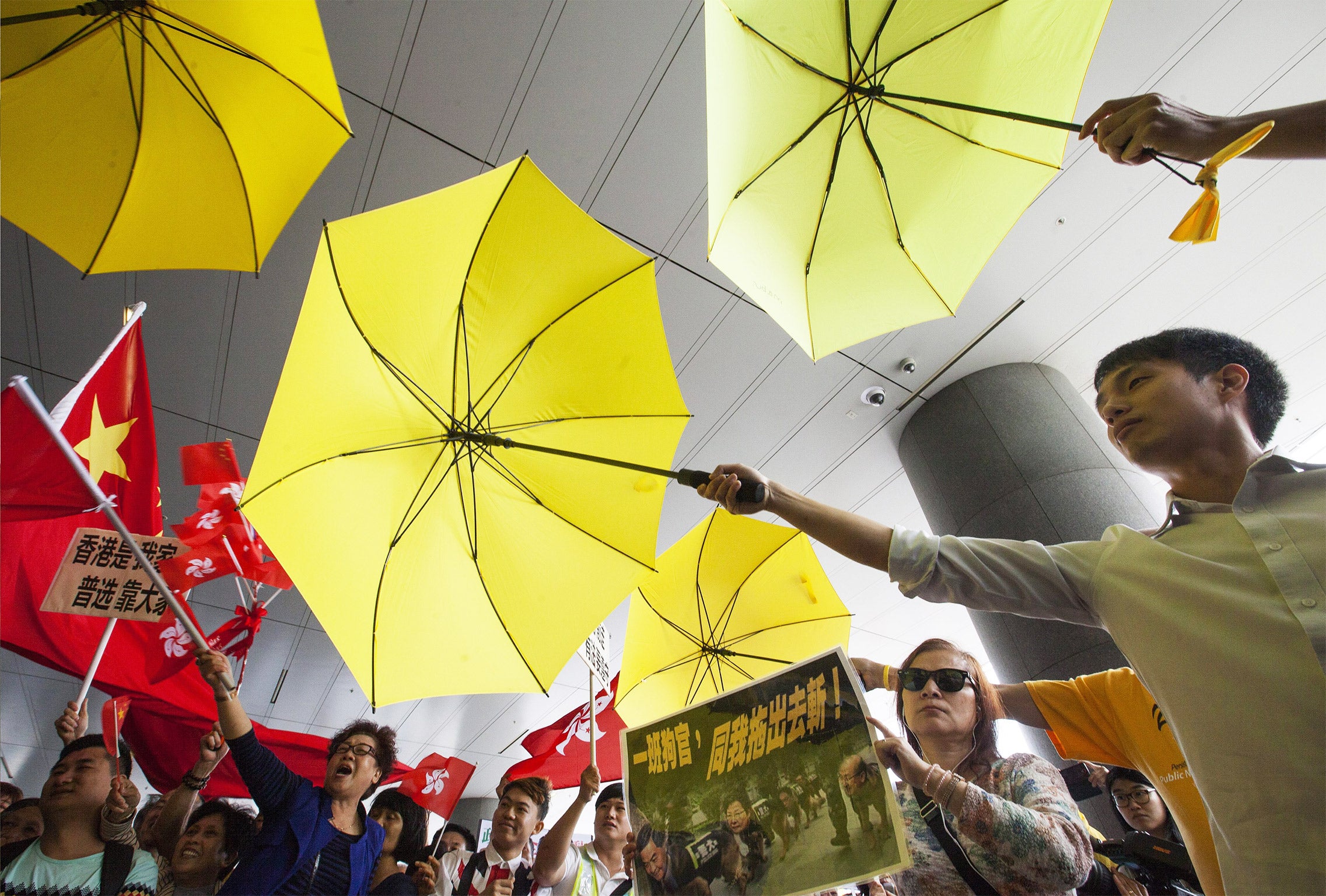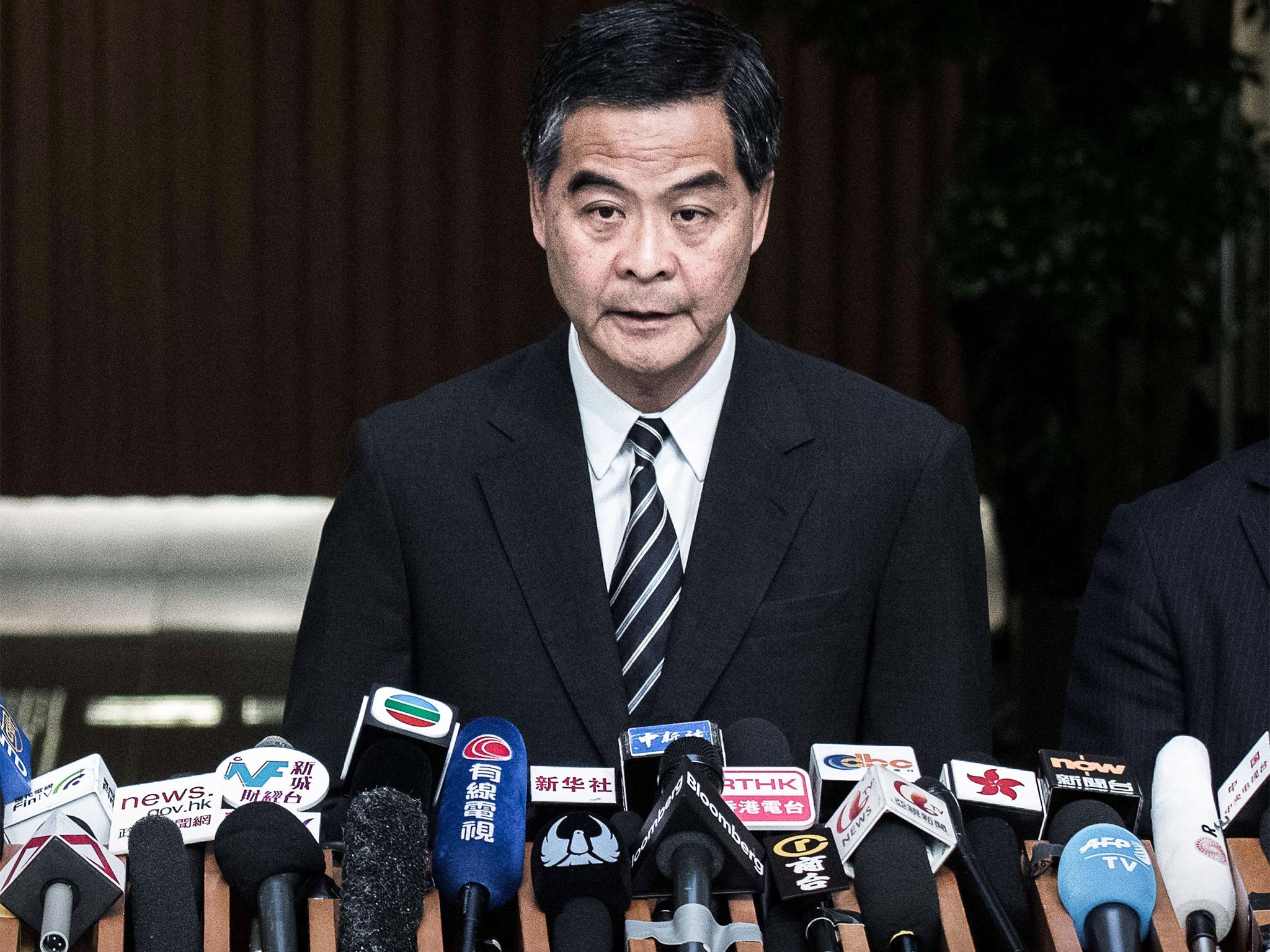Hong Kong election: Plans to appoint chief executive are in 'strict compliance' with instructions from China - and ignore democracy campaigners' demands
Campaigners left 'totally disappointed with the reform' and threaten fresh unrest – including storming government buildings

Your support helps us to tell the story
From reproductive rights to climate change to Big Tech, The Independent is on the ground when the story is developing. Whether it's investigating the financials of Elon Musk's pro-Trump PAC or producing our latest documentary, 'The A Word', which shines a light on the American women fighting for reproductive rights, we know how important it is to parse out the facts from the messaging.
At such a critical moment in US history, we need reporters on the ground. Your donation allows us to keep sending journalists to speak to both sides of the story.
The Independent is trusted by Americans across the entire political spectrum. And unlike many other quality news outlets, we choose not to lock Americans out of our reporting and analysis with paywalls. We believe quality journalism should be available to everyone, paid for by those who can afford it.
Your support makes all the difference.The plans for the people of Hong Kong to elect their chief executive for the first time are, as Beijing’s appointed leader admitted, in “strict compliance” with instructions from mainland China.
Hong Kong’s government has laid out its proposals for electing its next city leader, adhering to Beijing’s rigid framework and essentially ignoring the hundreds of thousands of citizens whose protests rocked the former British colony last year. Chief Secretary Carrie Lam’s announcement will be followed by weeks of political wrangling as she and the government try to push the plan through parliament.
Seventeen pro-democracy politicians staged a mass walk-out during the debate over the elections.

Ms Lam said the offering was in “strict compliance” with Beijing’s instructions. Addressing the pan-democrat camp directly, she said: “If LegCo [Hong Kong’s administrative council] vetoes the proposals, the aspirations of the general public to elect the chief executive through ‘one person, one vote’ will be shattered, which would be a great disappointment to the public.”
Joshua Wong, one of the leaders of last year’s protests, said he and his campaign group Scholarism were “totally disappointed with the reform”. He threatened fresh unrest – including storming government buildings – if it goes any further.
He told The Independent: “If any pan-democrats try to support the government, Scholarism will [apply] more pressure, and there will be more civil disobedience action. Whether we occupy the street or the Legislative Council is uncertain.”
During the Council session a crowd of around 800, supporting both sides, chanted, argued and waved emblems outside. Some waved Chinese flags, others yellow umbrellas. One man waved Hong Kong’s British colonial flag.
Under the plan, residents in the Chinese special administrative region will in 2017, for the first time, choose their leader in a one-person, one-vote election. But candidates will have to be approved by a 1,200-strong, generally pro-Beijing, election committee. There will also only be two or three candidates.

These restrictions brought hundreds of thousands on to the city’s streets last year, the so-called “Umbrella Movement”. For more than 70 days tent cities clogged traffic arteries on both sides of the harbour. Much of the anger was aimed at Ms Lam’s boss, the Chief Executive Leung Chun-ying.
Both the government and its masters in Beijing have insisted that to reject their plan would mean continuing with the current model, under which the committee votes for the chief executive, with no public vote.
Fernando Cheung, a pan-democrat from the Labour Party, said he was confident the opposition would scupper the proposal. He said: “We don’t want to collaborate with the vote because [if it passes] the Hong Kong government can say to the world that we have democracy.”
But Albert Chan, a member for People Power, was less confident. Asked if he thought the bloc would hold, he said: “It’s hard to say. It’s not difficult for Beijing to swing four or five votes.” He said he wouldn’t be voting in favour.
Join our commenting forum
Join thought-provoking conversations, follow other Independent readers and see their replies
Comments